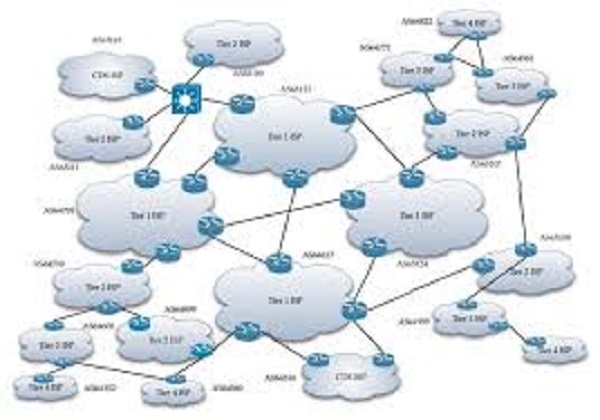4th Ghana Internet Conference: Prof. Kponyo urges ISPs to build resilient local internet ecosystem
 Internet Service Providers
Internet Service Providers
At the 4th Annual Ghana Internet Conference, organized by the Ghana Internet Service Providers Association (GISPA), keynote speaker Prof. Jerry John Kponyo, Scientific Director of the Responsible Artificial Intelligence Lab at KNUST, stressed the urgent need for Internet Service Providers (ISPs) in Ghana to develop a resilient local internet ecosystem.
He warned that without strong infrastructure, ISPs risk losing their competitive edge and hindering the growth of Ghana’s digital economy.
Speaking on the theme "Empowering Ghana: Building a Resilient Local Internet Ecosystem for Business Growth and Continuity," Prof. Kponyo noted that the COVID-19 pandemic revealed both opportunities and challenges related to internet access in the country.
“Remote work, online education, and digital services are now part of our daily lives.
To sustain this progress, we need more than just stable connectivity.
A resilient local internet ecosystem involves robust infrastructure, progressive policies, local content creation, skills development, and strategic partnerships,” he explained.
While acknowledging Ghana's progress in internet adoption and infrastructure development, Prof. Kponyo highlighted existing gaps.
As of January 2024, the country’s internet penetration rate stood at 69.8%, with around 24.06 million users. However, nearly 30% of the population still lacks internet access.
He emphasized that mobile technology, which accounts for 77% of web traffic in Ghana, remains crucial, though speed and reliability continue to need improvement.
Prof. Kponyo also referenced the internet disruption in March 2024, which affected several African countries, including Ghana, due to faults in undersea telecommunication cables.
The disruption, which lasted nearly eight weeks, underscored the vulnerability of Ghana's internet infrastructure.
“This incident should be a wake-up call.
We cannot afford to rely so heavily on international connections.
ISPs must work together to build stronger local networks that can withstand global disruptions,” he urged.
A key element of building a resilient local internet ecosystem, according to Prof. Kponyo, is strong physical infrastructure.
He called for continued investments in fibre optic networks, not only for international connectivity but also for terrestrial fibre connections across the country.
He also praised the Ghana Internet Exchange (GIX), operated by GISPA, for its role in optimizing local internet traffic and reducing costs for users.
Telecel Wholesale, sponsors of the event, echoed the call for collaboration to improve internet services and make digital access more widespread in Ghana.
Nii Lartey, head of Telecel Wholesale, emphasized the company's commitment to providing top-tier services through its extensive coverage and cutting-edge infrastructure.
“Telecel Wholesale is proud of its leadership in the connectivity industry.
We remain dedicated to supporting growth and development in Ghana's internet ecosystem and across Africa,” Lartey said.
During the conference, ISPs called for progressive policies to encourage investment and innovation in the sector.
While initiatives like the National Broadband Policy and the Cybersecurity Act have been positive steps, stakeholders noted that more needs to be done to create an enabling environment for service providers and businesses.
The conference underscored the importance of collaboration among ISPs, government institutions, and key industries to remain competitive in a rapidly evolving digital world.
The focus, participants emphasized, should not only be on expanding internet access but also on building a robust ecosystem that can withstand both local and global challenges, ensuring Ghana's digital future is secure, innovative, and sustainable
Trending News

Fire guts mobile money and phone shops at Kasoa Walantu, two injured
02:29
GFL Secretary-General calls for urgent resolution of TDC–TMA permit dispute
08:15
Foreign Affairs Minister presents six new buses to Ministry staff
08:16
Sir Sam Jonah cries to gov't over alleged seizure of investments in Nigeria
07:14
E/R: Kwahu Traditional Council gives IGP three-week ultimatum to release Abene Chief’s Palace
02:22
Mahama orders $78m payment to Justmoh to resume Agona–Nkwanta road works
08:01
Youth unemployment now a National security concern – Opare Addo
08:43
Parliament approves concession agreement for Accra-Kumasi expressway
08:15
Gender Minister hosts Christmas feast for children in residential care homes
02:09
GFL Secretary-General warns NDC against arrogance and complacency in power
07:54




